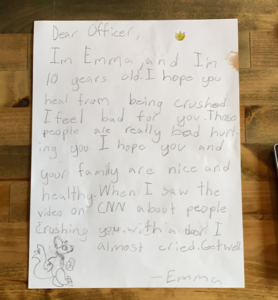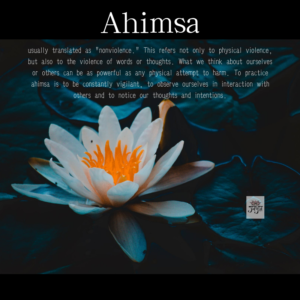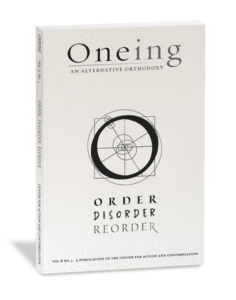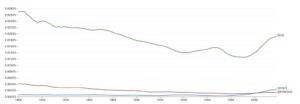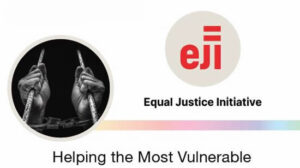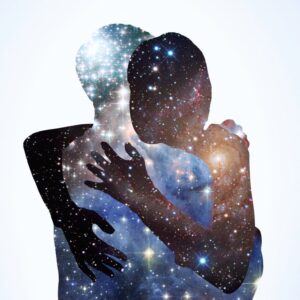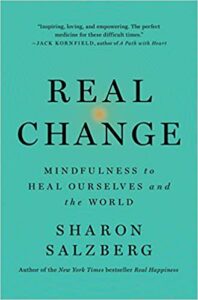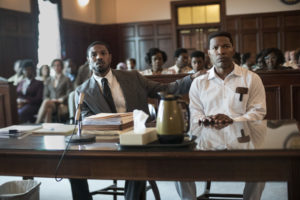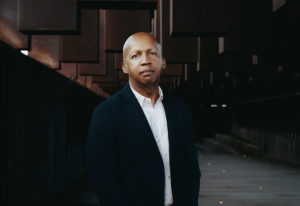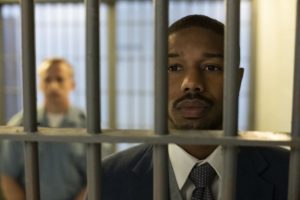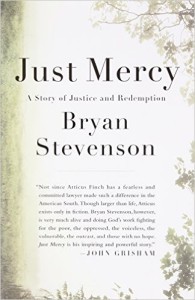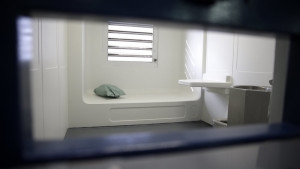Bryan Stevenson
Ahimsa.
January 12, 2021[A 10-year-old girl’s letter to the police officer seen being crushed in the insurrection riot at the Capitol building on January 6th, 2021.]
“Sorrow is my meditation.” -Dr. Jan Peppler
‘Our suffering has been trying to communicate with us, to let us know it is there, but we have spent a lot of time and energy ignoring it.
The suffering inside us contains the suffering of our fathers, our mothers, and our ancestors.
Our suffering reflects the suffering of the world.
Understanding suffering always brings compassion.’
-Thich Nhat Hanh
We are beaten and blown by the wind, blown the wind, oh when I go there, I go there with you, it’s all I can do.
-U2
‘Despite the terrific beating we were experiencing at the hands of fate, each of us still living out his faith. Even in the presence of extraordinary pain, we were taking right action, we were attending to our practice, each in her own way.
As I listened to the lyrics of this song, the depth of my commitment to my own spiritual path became clear to me.
Marianne Williamson, in her spiritual guidebook a Return to Love, “If you want to end darkness, you cannot beat it with a baseball bat, you have to turn on the light.”
We do not need to enter a showdown with our self-destructive behavior, nor can we deny its existence. We must simply come to now it, and move on. We learn to focus wholeheartedly on positive behavior.’
-Rolf Gates and Katrina Kenison
Additionally, ahimsa/non-violence practiced not only in behavior and thought, but also a vow to disrupt violence.
From Bryan Stevenson, founder of the Equal Justice Initiative, lawyer, author, and professor: “We are all implicated when we allow other people to be mistreated. An absence of compassion can corrupt the decency of a community, a state, a nation.”
From yoga teacher, practitioner, author and activist Seane Corn.
Dearest friends,
I intended this letter to be about the New Year, wishing you all the brightest and the best for 2021.
Sadly, so quickly into the year, the Capitol building in the US was assaulted by domestic terrorists, and, once again, this nation is in trauma and turmoil.
I am devastated by the events in DC and horrified by the people who caused so much suffering to democracy in the US. It’s tragic but not surprising. It felt like it was moving in this direction for a very long time.
Although this moment in history is sad and discouraging, I continue to commit to re-imagining a future that is happy, healthy, and peaceful for ALL and holding on to hope that justice will prevail and healing will occur for us in the US and throughout the world.
I hope you are doing okay. That you are breathing, staying in communication with your friends, family, and support system, and doing your yoga, meditation, and healing work.
I am sending you so much love to you and your family.
God bless,

The world cries out for compassion.
♡
Universally shared.
November 23, 2020Order.
Disorder.
Reorder.
Fr Richard Rohr, Center for Action and Contemplation:
Order becomes opportunity, stability melts into movement and change, status-quo government gives way to a revolution of community and neighborliness, policy bows to love, domination descends to service and sacrifice, control morphs into influence and inspiration, and vengeance and threats are transformed into forgiveness and blessing.
Contemplation: a long loving look at the real.
♡
Smart, generous and kind.
The Ngram tracks words used in books over the last 200 years. Here’s what a million authors and a billion readers think:
|
‘We may not each be called to the same work in the same ways, but we share the responsibility to repair the conscience of our nation, to stand up and stand in the gap for those who have lost hope, lost their way, lost their voice.’ Science of Mind Magazine named Stevenson their Spiritual Hero of the Year for 2020. |
In an adapted excerpt from Rohr’s A Spring Within Us, Father Richard Rohr says that mystic “simply means one who has moved from mere belief systems or belonging systems to actual inner experience. All spiritual traditions at their mature levels agree that such a movement is possible, desirable, and even available to everyone.”
“A mystic is an ordinary person who does ordinary things and experiences these moments of profound union with The Source, Mirabai Starr says.
Another sign you may be a natural mystic? An extreme affinity for nature.
Mirabai Starr: “That’s why there’s the term “Mother Earth.” For a lot of people with mystical inclinations, it’s a felt relationship with the earth, as a cherished loved one, as a relative. It’s about fully embodying our humanity and our relationship with the natural world, but that’s still a mystical experience, because we, our separate ego self dissolves into that vast mystery of The One.”
#911Remembered
September 11, 2020‘Dear darkening ground, you’ve endured so patiently the walls we’ve built, perhaps you’ll give the cities one more hour.’
~Rilke
Coronado, California
We don’t get over loss or tragedy.
“We learn to hold them both at the same time. in an open mind and heart, at the same time. In an open mind and heart, there is room for both.”
~Sharon Saltzberg
Dalai Lama about 9/11: ‘It happened.’
‘Don’t try to see or force yourself to see the traumas of your past as gifts. They are givens.’
-Roshi Joan Halifax
‘An absence of compassion can corrupt the decency of a community, a state, a nation. Fear and anger can make us vindictive, abusive, unjust, unfair, until we all suffer from the absence of mercy.’
~Bryan Stevenson
Unmerited Grace.
“Inspire to change.” See this.
January 11, 2020“I believe that hopelessness is the enemy of justice.”
-Bryan Stevenson
WBUR/TONYA MOSLEY
Michael B. Jordan (left) as Bryan Stevenson and Jame Foxx as Walter McMillian in “Just Mercy.”
(Photo by Jake Giles Netter/Warner Bros. Pictures)
Bryan Stevenson: “Many people, most people in this country don’t want there to be inequality and injustice. They don’t want people to be treated unfairly or cruelly. I just think if you get closer to it, you’ll be motivated to say more, to do more. I do hope people that see this film will walk away with a greater consciousness about why we need to do better in this country when it comes to creating a justice system that is fair and reliable.”
On addressing racist legacies, which have contributed to nearly 42% of death row inmates being black
“I think we do have to begin talking more honestly about our history of racial injustice. I don’t think our country has ever engaged in any meaningful process of acknowledging the injustice, the inequality. I think we’re a post-genocide society. What we did to Native people was a genocide, and we haven’t acknowledged that. And we’ve allowed systems to continue that have been compromised by these narratives of racial difference. I think the great evil of slavery was involuntary servitude. It was this idea that black people aren’t as good as white people. And that continues after the 13th Amendment. That’s why I’ve argued slavery doesn’t end, it just evolves, and we had 100 years of terrorism and lynching and violence where black people were pulled out of their homes and beaten and murdered and drowned and tortured and lynched. And we’ve never really talked about that. And even though we pay more attention to the civil rights era, we haven’t confronted the fact that this presumption of dangerousness and guilt that gets assigned to black and brown people is still with us. It’s why these police encounters with young black people that end up with lethal violence are so disruptive and so painful.”
“The great gift I have is that I am the great grandson of people who were enslaved and they believed in freedom when it wasn’t rational to. And I’m the grandchild of people who were terrorized by lynching and they believed in a better future, even though that didn’t seem logical. I’m the child of people humiliated by segregation and Jim Crow, and yet they believed I could be anything I want. And it’s that orientation of hopefulness that has sustained me. We say in the film and I say when I give talks, ‘I believe that hopelessness is the enemy of justice.’ If you want to do justice work, you have to be prepared to believe things you haven’t seen. And it’s what continues to define the work I try to do today.”
‘Do people deserve to die for the crimes they’ve committed?’ I think the threshold question is, ‘Do we deserve to kill?’”
This 60 Minutes piece is referenced and recreated in the film, “Just Mercy.” Then correspondent Ed Bradley interviewed Bryan Stevenson and others about Johnny D…Walter McMillian…aired on November 22, 1992.
The True Story Behind “Just Mercy”.
On September 19, 1988, Judge Robert E. Lee Key, Jr., the first presiding judge (Yes, his real name) overruled the jury’s recommendation of a life sentence and imposed the death penalty.
Bryan Stevenson and Walter McMillian remained friends until Walter’s death in 2013. He died after he developed dementia believed to have been brought on by the trauma of imprisonment. [From Stevenson, Bryan (2014). Just Mercy: A Story of Justice and Redemption. New York: Spiegel & Grau. p. 368.].
July 11, 2016
Comments from Just Mercy author and Equal Justice Initiative Founder Bryan Stevenson:
“We have a history of racial inequality that we really haven’t adequately acknowledged.”
~
“And then we codified our racial hierarchy through segregation. We passed the Civil Rights Act but we never dealt with this presumption.”
~
“Our failure to take seriously this problem is rooted in an unwillingness to acknowledge the damage done by slavery, lynching & segregation.”
http://www.eji.org/presumption-of-dangerousness-behind-police-abuse-of-black-people-cbs-this-morning
Dialogue for Criminal Justice Reform
July 27, 2015Equal Justice Initiative
“Seeking justice for all treatment…”
slate.com
John Oliver, ‘Last Week Tonight’:
‘Mandatory minimum sentences can send Americans to prison for decades for even low-level drug offenses—regardless of context—as John Oliver explained on Sunday’s episode of Last Week Tonight. Even the judges who are forced to issue these sentences often think they’re egregiously unfair.
So why do we have them? Most mandatory minimum sentencing laws were written during the height of the crack epidemic in the 1980s and ’90s, when politicians from both sides of the aisle raced to outdo each other when it came to being “tough on drugs.” Though the policies were immensely popular, almost everyone agrees they were a mistake, and what’s worse, they’ve contributed to the United States’ insane incarceration rate.’
Mother Jones
http://www.motherjones.com/politics/2015/07/sandra-bland-bail-bond-system
“The large companies behind many local bondsmen are part of the American Bail Coalition, a powerful national association that has spent three decades pushing legislation that makes it harder for defendants like Bland to get out of jail without paying large sums of money. Before ABC began lobbying, in 1990, commercial bail accounted for just 23 percent of pretrial releases; today it’s 49 percent. Average bail amounts for felony cases have almost tripled in the past 25 years. Meanwhile, between 2004 and 2012, ABC companies whose income comes almost entirely from bail saw their revenues increase 21 percent.”
NPR
“About 1,000 people die in American jails (not prisons) every year, and about a third of those are suicides.”
http://www.npr.org/2015/07/27/426742309/the-shock-of-confinement-the-grim-reality-of-suicide-in-jail
